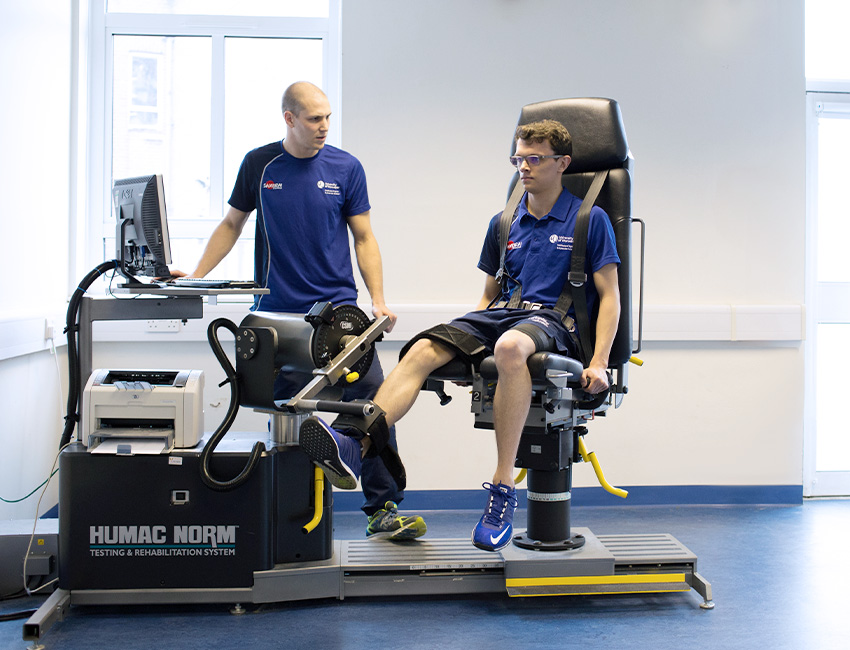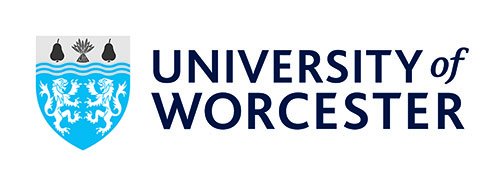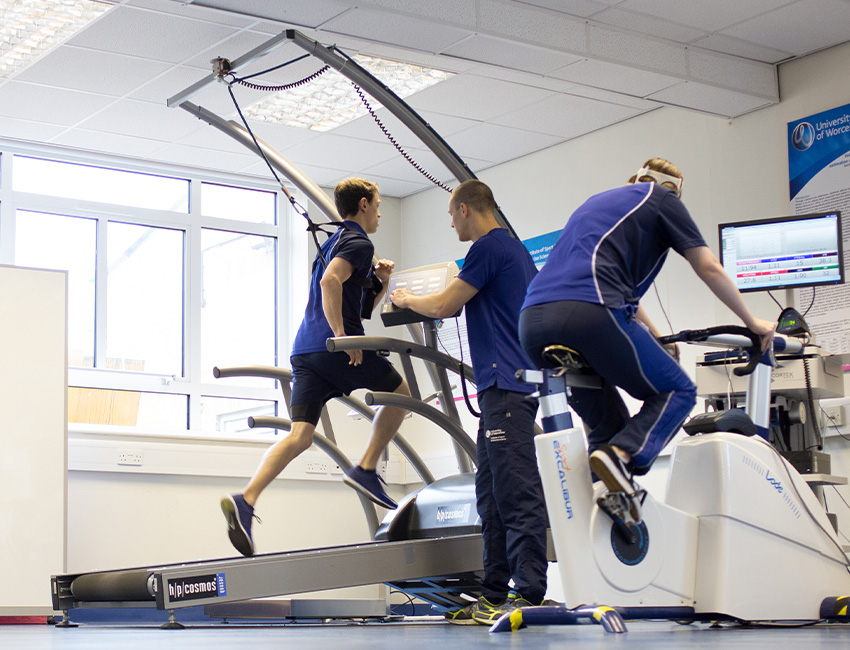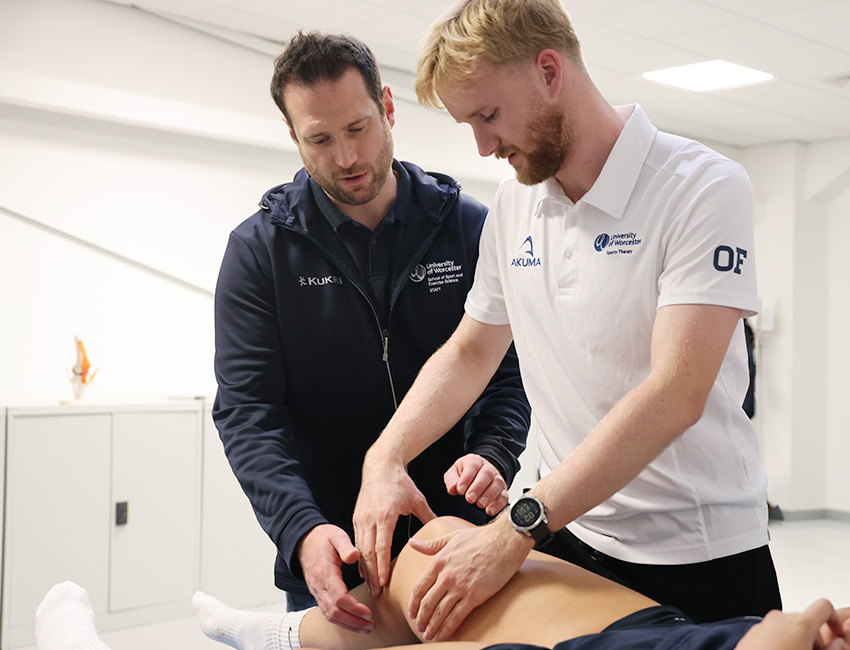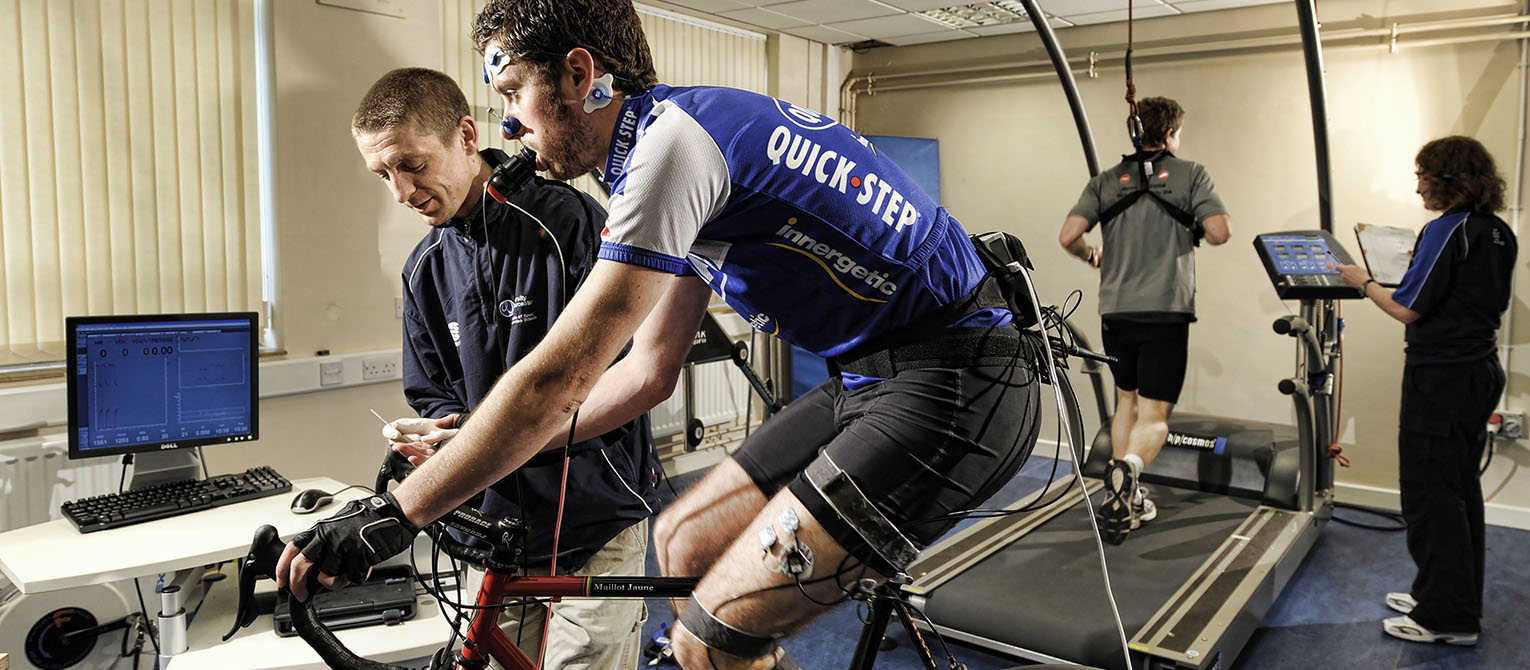Students will examine the common means of measuring athlete performance to produce a holistic athlete profile. The module will focus on both laboratory and field testing and will consider the appropriateness and effectiveness of different testing protocols.
This module is part of the University’s Applied Sport Physiology MSc course. You will study alongside students on this course. The module is also part of the Professional Development MA/MSc course - a flexible course that you help design to take your career to the next level.
Overview
This module encourages students to consider the physiological factors limiting sporting performance and methods for assessing the ability of athletes to meet these demands.
Students will examine the historical development of human performance and the factors that determine performance. Students will examine the common means of measuring athlete performance to produce a holistic athlete profile.
The module will focus on both laboratory and field testing and will consider the appropriateness and effectiveness of different testing protocols.
Intended learning outcomes
On successful completion of the module, students should be able to:
- Critically appraise the role of sport, environmental & lifestyle specific factors in influencing sporting performance.
- Critically assess different models of human fatigue.
- Drawing from contemporary literature, critically appraise a range of testing methodologies from laboratory and field-testing environments.
- Demonstrate competencies in data collection, analysis, interpretation and feedback.
- Justifying their choice of testing protocols.
Indicative Content
- Historical progression of human performance.
- Models of fatigue (e.g., central and peripheral fatigue, central governor model, integrative governor model, psychobiological model).
- Genetic inheritance and trainability.
- Contemporary theory relevant to laboratory and field testing.
- Choosing appropriate performance tests taking into account practicality, data quality, availability and costs.
- The analysis and interpretation of performance related data
It is expected that all advertised modules will run, but there may be situations where there are insufficient students to make a particular module viable.
Career benefits
Completing this module should have a direct impact on your career where it requires skills, knowledge and ability in the area of applied sport physiology.
Completing work for this module also provides an opportunity to demonstrate your professional understanding and capabilities in annual reviews, in seeking increments and promotions, or job interviews.
Module delivery
This module is delivered in taught face to face sessions weekly on campus.
Assessment
Assessment of this module includes a Report and written response. This is a 2-part assessment:
- Part 1: Students will produce a report to present results of an assessment battery to an athlete. They will be expected to present data, explain what it means, and the implications of the data presented.
- Part 2: Students will be expected to provide responses to questions raised (as if) by an athlete receiving the report. The questions the student has to respond to will be derived from reading the submitted report.
Entry Requirements
Entry to this module requires registration to a postgraduate award in Professional Development. The module is also available as a stand alone module, anyone wishing to take this module as a stand alone module should contact the admissions team.
No prior study is required for this module, but it is advisable to contact the module leader prior to selection of this module.
Contact
If you have any questions, please get in touch. We're here to help you every step of the way.

Postgraduate Professional Development Team
PG.ProfessionalDevelopment@worc.ac.uk
Admissions Office
admissions@worc.ac.uk01905 855111